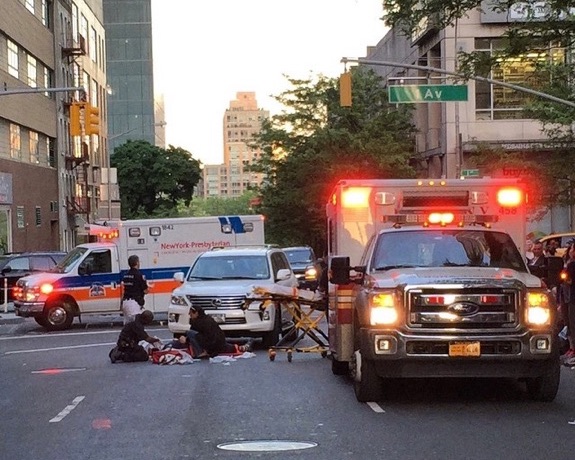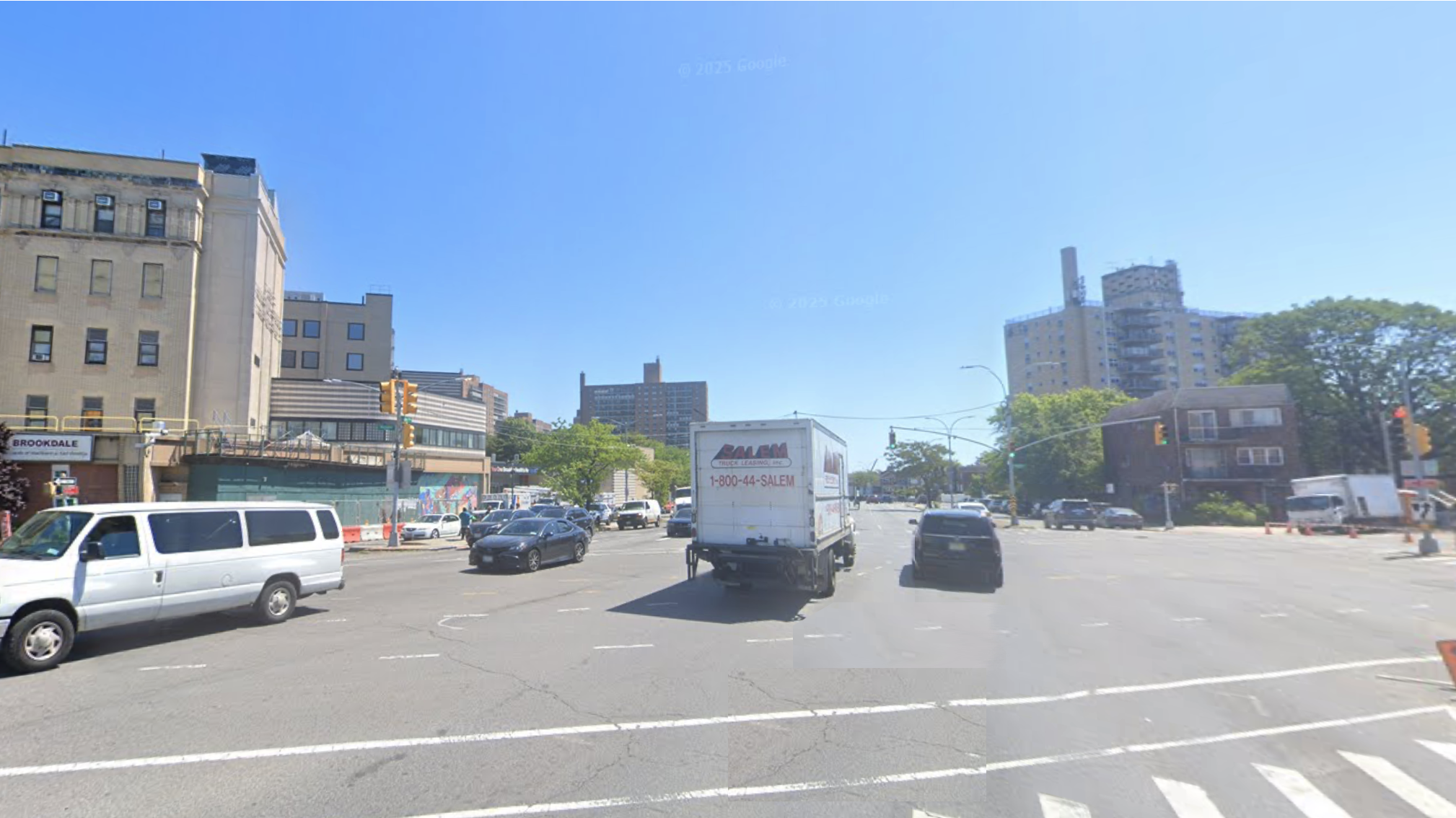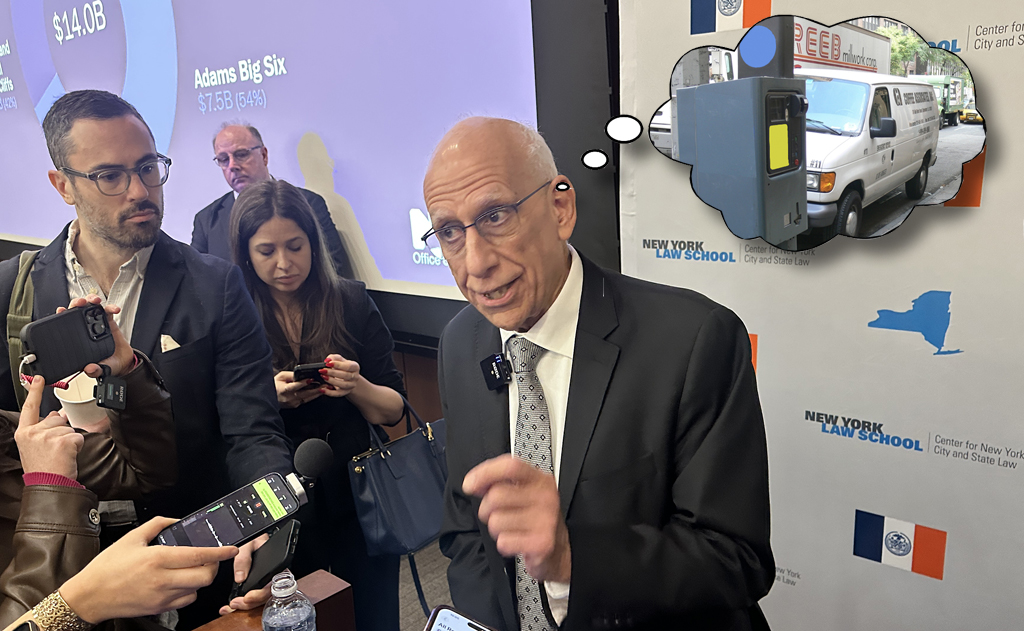
City Council Member Rory Lancman wants to make it more difficult for NYPD to charge drivers who injure and kill people when, in his words, "accidents are caused by poor road conditions, bad weather and scofflaw pedestrians." But if anything, NYPD has been exceedingly cautious in applying the Right of Way Law when there's a chance the victim was not in a crosswalk.
If there's even a speck of doubt about whether the victim had the right of way, NYPD isn't filing charges against the driver.
The above photo was taken by a reader after an SUV driver fatally struck 89-year-old John Torson as he was walking across E. 61st Street at First Avenue. As we reported last Friday, the day after the crash, an NYPD spokesperson told Streetsblog that, according to the Collision Investigation Squad, Torson was “outside of the marked crosswalk” when he was hit. You can see from the photo that, if Torson was not in the crosswalk, he was at most no more than one car length away. You can't rule out the possibility that Torson was struck in the crosswalk and propelled forward by the force of impact.
As of today, police had filed no charges against the driver.
The Right of Way Law took effect last August. Between last September and March 2015, the latest month for which NYPD crash data is available, city motorists injured or killed over 8,000 pedestrians and cyclists. As of April, NYPD had applied the Right of Way Law just 22 times. NYPD is training beat cops to use the law, but as of now virtually all cases resulting in Right of Way Law charges are investigated by the Collision Investigation Squad -- a small unit of detectives who are trained to process crash scenes, and whose work is relied upon to convict motorists on serious charges, like homicide.
With an application rate of one-quarter of one percent, and investigators declining to prosecute drivers whose victims were said to be just outside the crosswalk, it's clear that NYPD is being very conservative with the Right of Way Law. Lancman’s proposed Right of Way Law amendment -- which would absolve drivers who harm people when the weather is bad -- would lead police to apply the law even less frequently.





